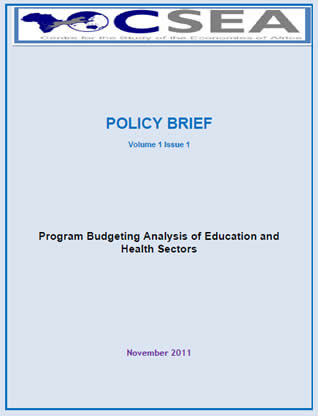This policy brief discusses how the public expenditure benefits the rich more thanthe poor. The full study analyses the incidence of public expenditures in the Nigerianeducation and health sectors revealing that more of children enrolled in primaryschools are from poor households. This is in contrast to public expenditure onsecondary and tertiary education which benefits richer households. Further analysisin the health sector show that the poorest households were the least likely to reportsickness and seek treatment, making them minority users of the government healthservices. The wealthiest households, however, are the main users of health facilities.Another analysis known as progressivity and targeting test, was carried out usingbenefit concentration curves for both sectors. The results show that Nigerias in-kindsubsidy is poorly targeted.

